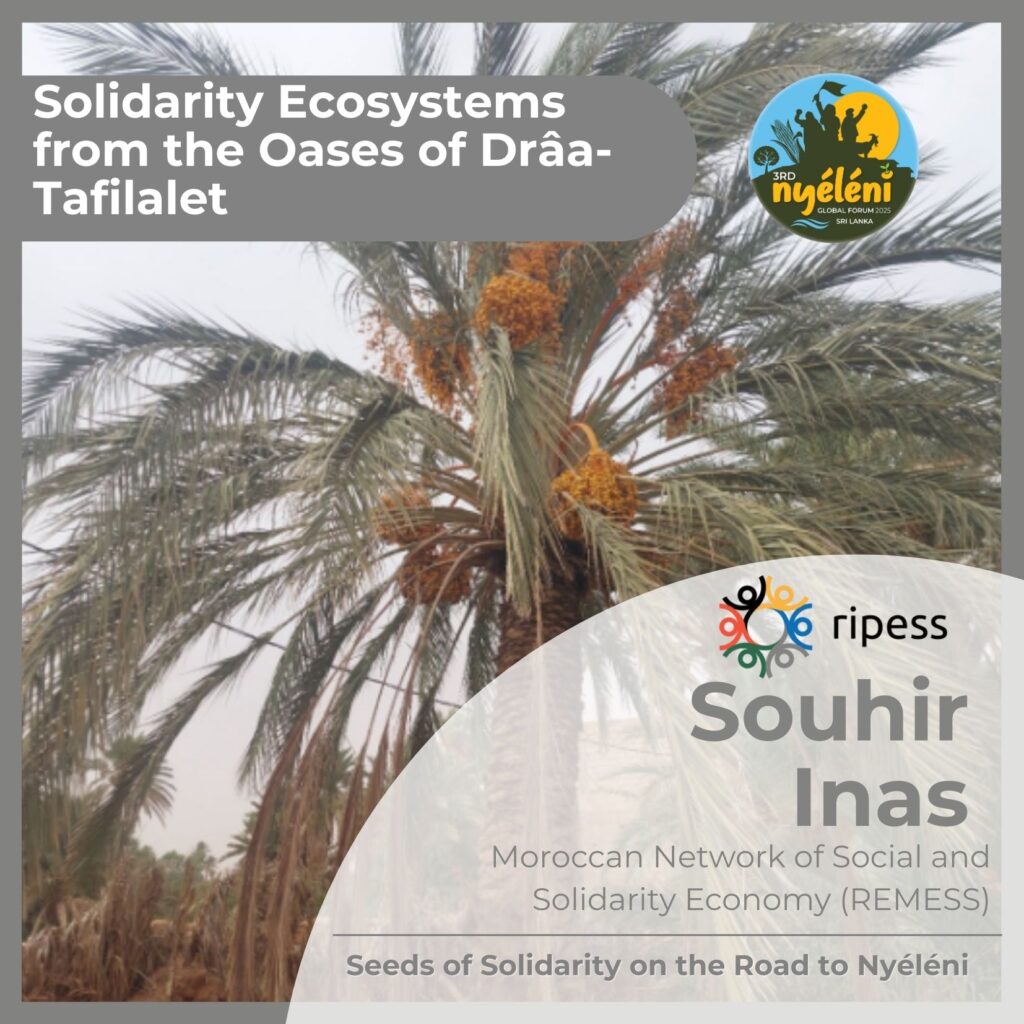
From the Moroccan region of Drâa-Tafilalet, Souhir Inas, a young activist under 30, arrives at the Nyéléni Forum with a suitcase full of experiences, knowledge, and hope. She is part of the Moroccan Network for the Social and Solidarity Economy (REMESS) and works alongside women’s cooperatives, rural youth, and collectives committed to transforming their territory.
Drâa-Tafilalet is a land rich in natural resources—dates, saffron, aromatic and medicinal plants—but also marked by marginalization, climate change, and rural exodus. In this context, Souhir and her community have turned the Social and Solidarity Economy (SSE) into a living tool for resistance and regeneration. Through agroecological projects, community seed banks, solidarity-based short supply chains, and training workshops, they promote an inclusive food sovereignty rooted in the local and connected to the global.
At the national level, SSE represents 2.4% of GDP and 6% of formal employment, with over 41,000 cooperatives, 30,000 associations, and numerous mutuals serving nearly 4 million people. In Drâa-Tafilalet, this economy accounts for 7.54% of the country’s cooperatives and 9.31% of their members, making it a key driver of inclusive development.
The challenges they face include water scarcity, the precariousness of small-scale producers, lack of access to fair markets, and the exclusion of women, youth, and other identities from decision-making processes. Added to this is the growing threat of fires that ravage palm groves each year, endangering oases, local biodiversity, and the livelihoods of rural communities.
In response, Souhir leads citizen awareness campaigns, community solidarity networks, and ecological rehabilitation efforts. She also promotes the recovery of traditional knowledge related to sustainable water and land management and fosters alliances among SSE actors to pool efforts and develop local markets.
In her suitcase for Nyéléni, Souhir brings the experience of the cooperatives of Drâa-Tafilalet, a date as a symbol of resilience in the face of drought, and a clear message: food sovereignty must be built on the valorization of local knowledge, solidarity, and the inclusion of marginalized communities.
“From our oases, resistance is born; from our cooperatives, food sovereignty grows.”
Discover more Seeds of Solidarity on the Road to Nyéléni 2025!


